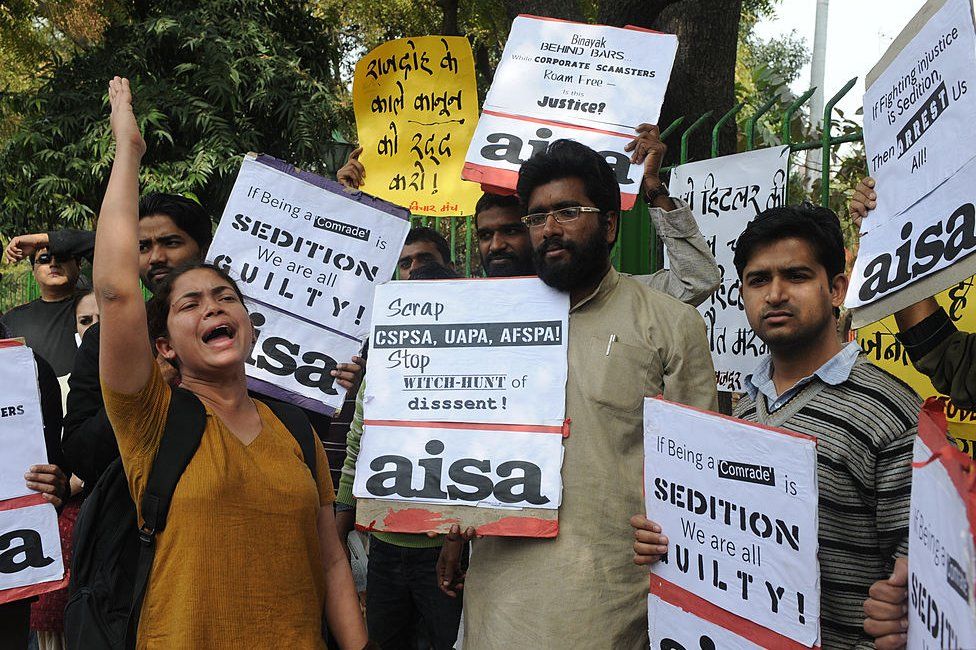India’s apex court has paused the controversial sedition law of the colonial-era till the government reviews it.
The court said in its order, “the case of petitioners is that this provision of law dates back to 1898, and pre- dates the constitution itself, and is being misused. The Attorney General had also, on an earlier date of hearing, given some instances of glaring misuse of this provision, like the case of recital of the Hanuman Chalisa. Therefore, we expect that, till the re-examination of the provision is complete, it will be appropriate not to continue the usage of the aforesaid provision of laws by the governments.”
Furthermore, on Wednesday, judges said that those who are already accused under the law could now seek bail from trial courts.
In case of a fresh case under section 124A of Indian Penal Code, “the affected parties are at liberty to approach to the concerned courts for appropriate relief. The courts are requested to examine the reliefs sought, taking into account the present order passed as well as the clear stand taken by the Union of India,” the court added.
At this juncture, Kapil Sibal, a senior leader of the Congress Party and lawyers of the petitioners have pointed out that there were over 800 pending cases of sedition across India and around 13,000 people were in jail.
What is Sedition law?
Sedition is defined in section 124A of Indian Penal Code as: “Whoever, by words, either spoken or written, or by signs, or by visible representation, or otherwise, brings or attempt to bring hatred or contempt, excites or attempt to excite disaffection towards, the Government established by law shall be punished with imprisonment for life, to which fine may be added…”
Furthermore, there are three explanation of this provision-
- Explanation 1- the expression “disaffection” includes disloyalty and all the feelings of enmity.
- Explanation 2- comments expressing disapprobation of the measures of the Government with a view to obtain their alteration by lawful means, without exciting or attempting to excite hatred, contempt or disaffection, don not constitute an offense under this section.
- Explanation 3- Comments expressing disapprobation of the administrative or other action of the Government without exciting or attempting to excite hatred, contempt or disaffection, don not constitute an offence under this section.
This law was rigorously used by the colonial government to curb the growing discontent among the masses during the time of the Indian struggle for independence. There were sedition cases against freedom fighters like Annie Besant, Mohandas Karamchand Gandhi, Bal Gangadhar Tilak, etc.
India isn’t the only country reviewing the provision. As an example, the United Kingdom repealed its sedition law in 2009, on the grounds that it hinders freedom of speech and expression of an individual.

